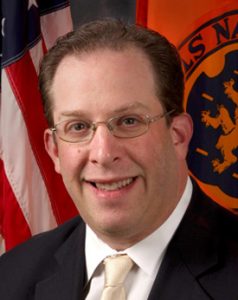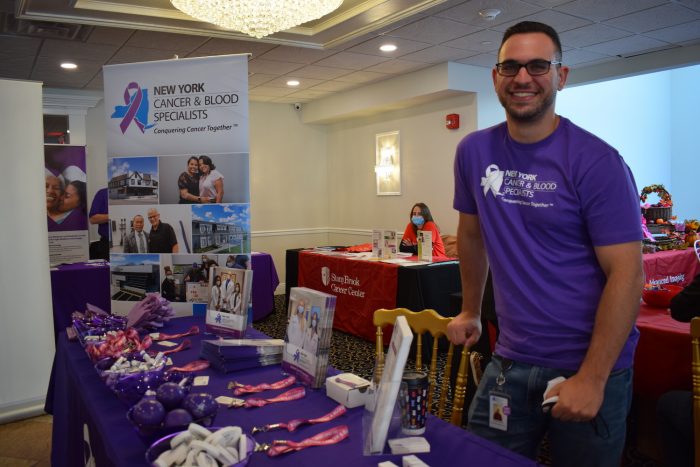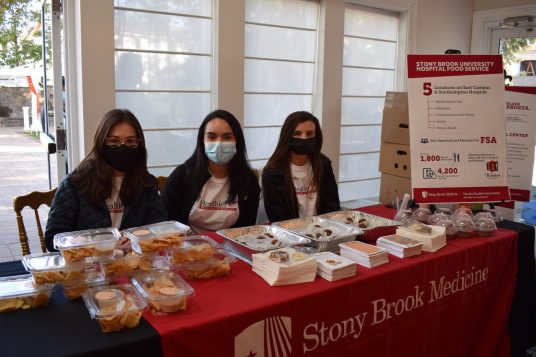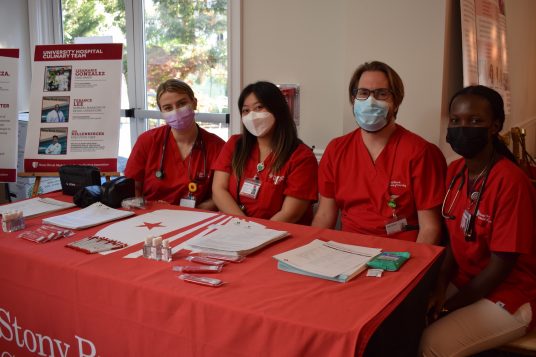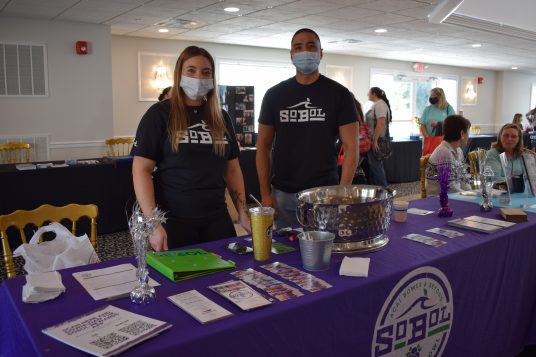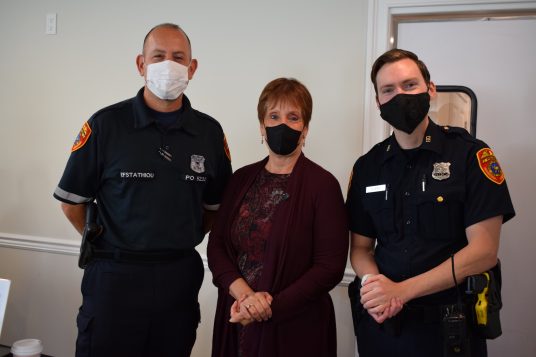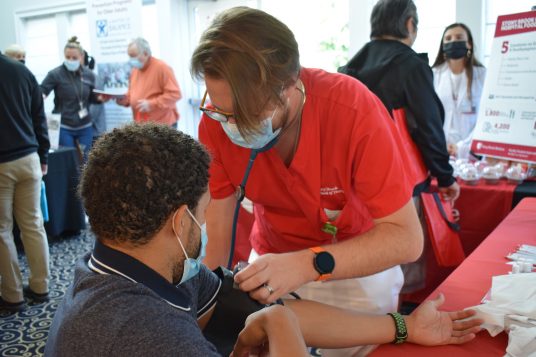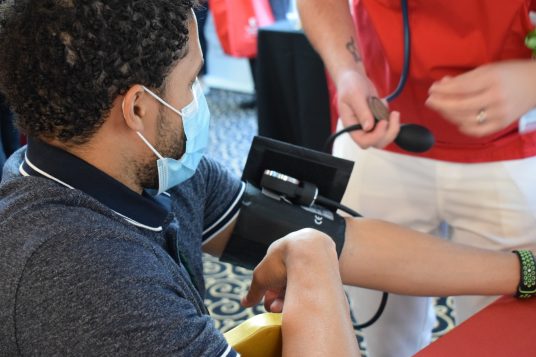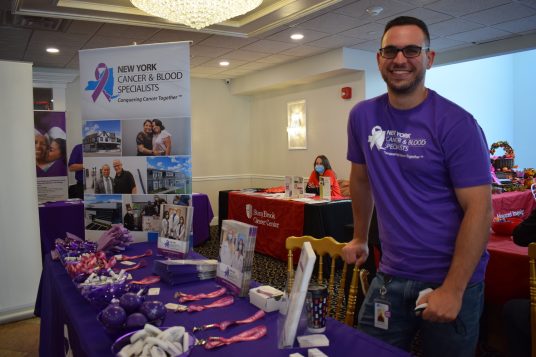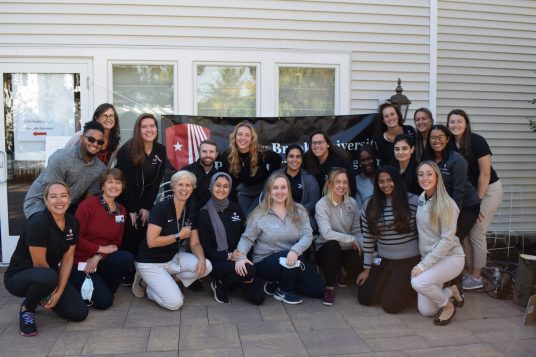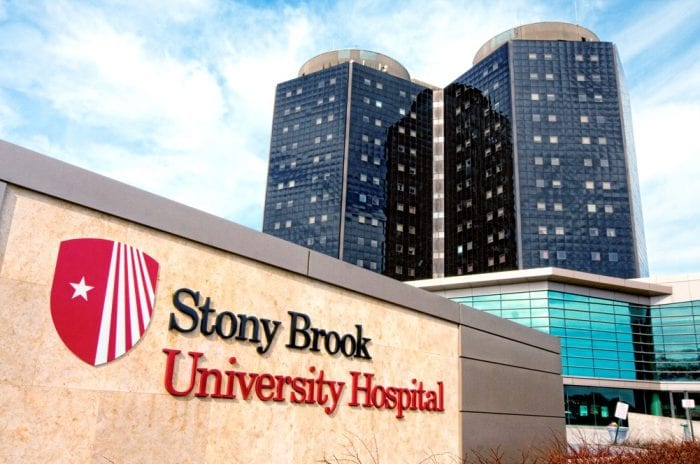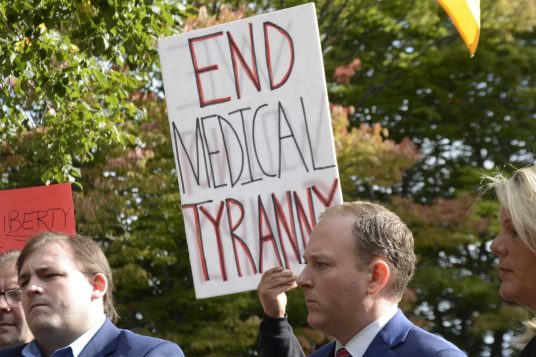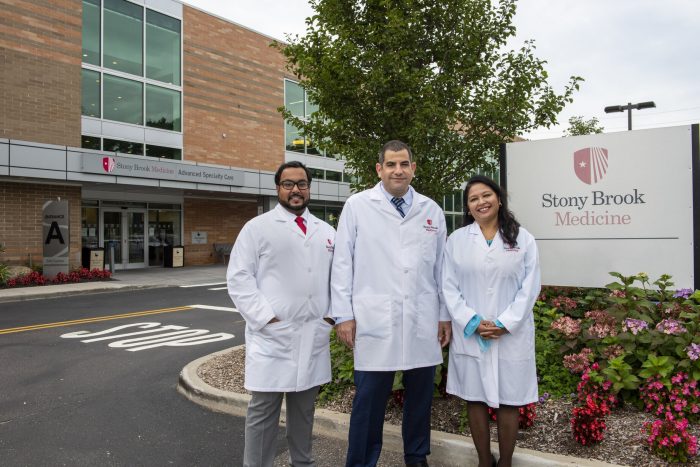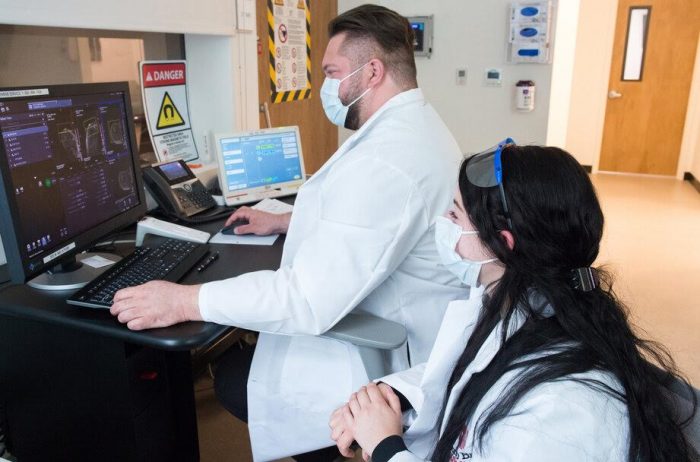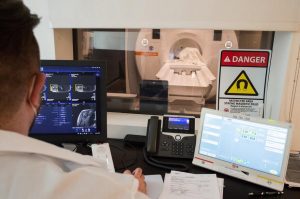Congressman Lee Zeldin (R-NY1) rallied with health care workers to boycott Gov. Kathy Hochul’s (D) vaccination deadline, Sept. 27.
Zeldin, who is campaigning for governor, joined other elected officials outside the state building in Hauppauge Monday just hours before health care workers were required to get the COVID-19 vaccine by midnight or risk losing their jobs.
On Monday night, Hochul signed an executive order to significantly expand the eligible workforce and allow additional health care workers to administer COVID-19 testing and vaccinations.
According to the mandate, if health care workers do not receive at least one dose of one of the COVID-19 vaccines by the end of day Monday — without a medical exemption or having previously filed for a religious exemption — they will forfeit their jobs.
The congressman has been vocal over the mandates, locally and nationally.
“Our health care workers were nothing short of heroic the past 18 months,” Zeldin said. “We shouldn’t be firing these essential workers. We should be thanking them for all they’ve done for our communities.”
Zeldin was calling on Hochul to work with medical facilities and the state’s health care workers to “implement a more reasonable policy that does not violate personal freedoms, fire health care workers who helped us through the pandemic’s worst days, and cause chaos and staffing shortages at hospitals and nursing homes.”
Hochul stated this week that to fill the vacancies in hospitals, she plans to bring in the National Guard and other out-of-state health care workers to replace those who refuse to get vaccinated.
“You’re either vaccinated and can keep your job, or you’re out on the street,” said Zeldin, who is vaccinated.
State Sen. Mario Mattera (R-St. James) said he was angered when health care employees were given limited ability to negotiate the vaccine mandate through their unions.
“This isn’t a state of emergency, like a hurricane,” he said. “This is a state of emergency that people get fired, and not going to have unemployment insurance. I am a union leader. This is a disgrace to all Americans.”
According to the state Department of Labor, unvaccinated workers who are terminated from their jobs will not be eligible for unemployment insurance benefits. A new Republican-led bill introduced in Albany would restore those jobless benefits.
On Tuesday, the state released data noting the percentage of hospital staff receiving at least one dose was 92% (as of Monday evening) based on preliminary self-reported data. The percentage of fully vaccinated was 85% as of Monday evening, up from 84% on Sept. 22 and 77% on Aug. 24.
“This new information shows that holding firm on the vaccine mandate for health care workers is simply the right thing to do to protect our vulnerable family members and loved ones from COVID-19,” Hochul said in a statement. “I am pleased to see that health care workers are getting vaccinated to keep New Yorkers safe, and I am continuing to monitor developments and ready to take action to alleviate potential staffing shortage situations in our health care systems.”
Long Island’s three health care providers have already implemented the mandate and are taking action.
Northwell Health, the state’s largest private employer and health care provider — and which includes Port Jefferson’s Mather Hospital and Huntington Hospital — previously notified all unvaccinated team members that they are no longer in compliance with New York State’s mandate to vaccinate all health care workers by the Sept. 27 deadline.
“Northwell regrets losing any employee under such circumstances, but as health care professionals and members of the largest health care provider in the state, we understand our unique responsibility to protect the health of our patients and each other,” Northwell said in a statement. “We owe it to our staff, our patients and the communities we serve to be 100% vaccinated against COVID-19.”
Catholic Health Executive Vice President and Chief Medical Officer Jason Golbin said in a statement that the provider is “incredibly proud of our staff’s dedication to protecting the health and safety of Long Islanders during the COVID-19 pandemic and are grateful for their heroic efforts over the last 18 months.”
He added, “In keeping with our commitment to ensuring the health and safety of our patients, visitors, medical staff and employees, we are complying with the New York State vaccine mandate for all health care workers.”
Golbin said that as of Tuesday, Sept. 28, the vast majority of staff is fully vaccinated with only a few hundred people furloughed from across six hospitals, three nursing facilities, home health care, hospice and other physician practices.
Stony Brook University officials added Stony Brook medicine has been preparing for New York State’s mandate all healthcare workers get at least one dose of the COVID-19 vaccine by the deadline.
As of 8 p.m. on Sept. 28, 94.07% of Stony Brook University Hospital employees have been vaccinated, and this number continues to increase, 134 Stony Brook University Hospital employees are being placed on suspension without pay and will be scheduled to meet with Labor Relations representatives to discuss their circumstances. While awaiting this meeting, they can use vacation or holiday time off. If they continue to elect not to receive the vaccine, they will be terminated in accordance with the NYS DOH order.
Less than 1% of the hospital’s total employee population are in a probationary employment period and while they are currently suspended without pay, they are still eligible to be vaccinated before their terminations are processed and could still return to work.
Officials said these numbers are fluid and are expecting further declines.

